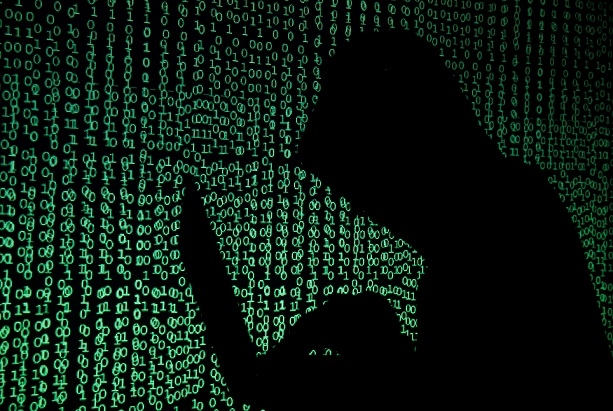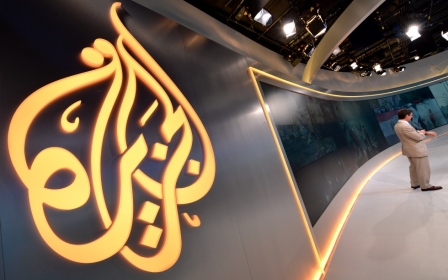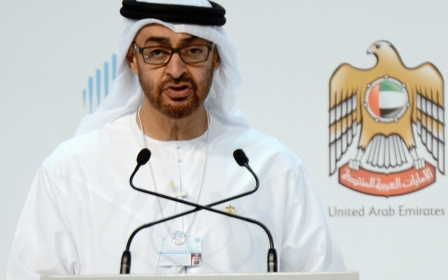Crisis in Qatar sends cyber-security warning to rest of the world

When Saudi Arabia, Bahrain, the United Arab Emirates and Egypt cut diplomatic ties with Qatar on 5 June, they did so not only because of Doha’s alleged support for terrorism but also because of its perceived friendly attitude towards Iran.
Qatar’s ambiguous posture toward Tehran has been a thorn in Saudi Arabia’s side for some time – but the action was partly triggered by a controversial news report from the Qatari state news agency on 23 May.
The cyber attack on Qatar could lead to larger shifts in geopolitical alignment. Already Turkey has signalled its support for Doha
The remarks attributed to the country's ruler and foreign minister, rejected by Doha as fake news, appear to have come from a deliberate cyber-misinformation campaign aimed at provoking diplomatic uproar in the Gulf.
CNN reported the findings of a team of FBI investigators sent to Doha. The US officials concluded, CNN said, that on 23 May Russian hackers placed a fabricated story on the agency’s site in which Emir of Qatar Tamim bin Hamad al-Thani appeared friendly toward Iran and Israel and questioned whether US President Donald Trump would survive in office.
Using cyber for geopolitical ends
The attack has showcased the trend of governments and their proxies to wreak geopolitical havoc abroad through cyberspace.
On 9 June, Al Jazeera also reported a large-scale cyber attack across its systems, websites and social media platforms, making its digital and satellite services temporarily unavailable.
While the source of the 23 May breach was found to be a Russian freelance operation; the Russian government denied any involvement. It remains unclear on whose behalf the hackers acted.
The cyber attack on a key US ally – Qatar hosts some 10,000 American troops and a major US military base – raises concerns in the United States about continued Russian cyber warfare that officials say appears motivated “to cause rifts among the US and its allies”.
The crisis not only escalates existing rifts in the Gulf, or diplomatically and geographically isolates a major US ally. It could also lead to larger shifts in geopolitical alignment. Already Turkey has signalled its support for Doha. An isolated Qatar could also seek relief in strengthening its ties with Iran and Russia.
Such high-profile attempts to alter political power constellations abroad by means of cyber breaches give autocrats and criminals around the world a thankful and highly cost-efficient means to influence to geopolitical opinion.
Vulnerabilities abound
There is little novelty in the systemic use of technology information geopolitics, but the digital environment lends the activity a whole new scope and quality.
The digitalisation of industries in times of universal connectivity creates vulnerabilities that can be used by political antagonists in targeted ways.
As a recent report by the European Institute for Security Studies points out, the very nature of cyberspace facilitates the shift of global political competition and inter-state conflict into the cyber domain as “cyber armies do not need to be moved across borders; cyber weapons can be purchased on darknets relatively cheaply; and the norms of state behaviour in the digital domain are still work in progress.”
Cyber breaches from countries like Russia, China and Turkey have involved not only espionage, but also the scanning of critical infrastructure, misinformation campaigns and other disruptive attacks.
The vast possibilities for exploiting digital vulnerabilities with very little investment supports experts' claims that cyberspace will be the future battlefield for global and regional power competition.
Widening pool of antagonists
At the same time, the geopolitical relevance of cyberspace means that not only states and transnational corporations can project meaningful geopolitical influence.
Cyberspace is not only an arena for future geopolitical contentions; it also significantly broadens and widens the pool of possible antagonists, including both individuals – such as human rights activists, whistleblowers and lone wolf-attackers - and non-state actors, including terrorist organisations, resistance movements and NGOs.
During the past decade, governments have gone to great lengths to build up their cyber security capacities, but these efforts often remain under-staffed and under-funded
Pointing out the geopolitical hazards of cyberspace is not an argument for the demonisation of digital transparency. Rather it is about taking measures to minimise the potential for geopolitical disruption inherent to the digital age.
During the past decade governments have gone to great lengths to build up their cyber security capacities. But these efforts often remain under-staffed and under-funded, struggling to keep up with the quick pace of demand.
Disruptive events such as the Qatar crisis are likely to force governments to realise that cyberspace is now a fully fledged arena in which to practice classical geopolitics rather than a separate policy area best left to techies.
- Kristina Kausch is a Senior Resident Fellow at the German Marshall Fund in Brussels. Join her on Twitter: @kristinakausch
The views expressed in this article belong to the author and do not necessarily reflect the editorial policy of Middle East Eye.
Photo: A hooded man holds a laptop computer as cyber code is projected on him in this illustration picture taken in May 2017. (Reuters)
This article is available in French on Middle East Eye French edition.
Middle East Eye propose une couverture et une analyse indépendantes et incomparables du Moyen-Orient, de l’Afrique du Nord et d’autres régions du monde. Pour en savoir plus sur la reprise de ce contenu et les frais qui s’appliquent, veuillez remplir ce formulaire [en anglais]. Pour en savoir plus sur MEE, cliquez ici [en anglais].






